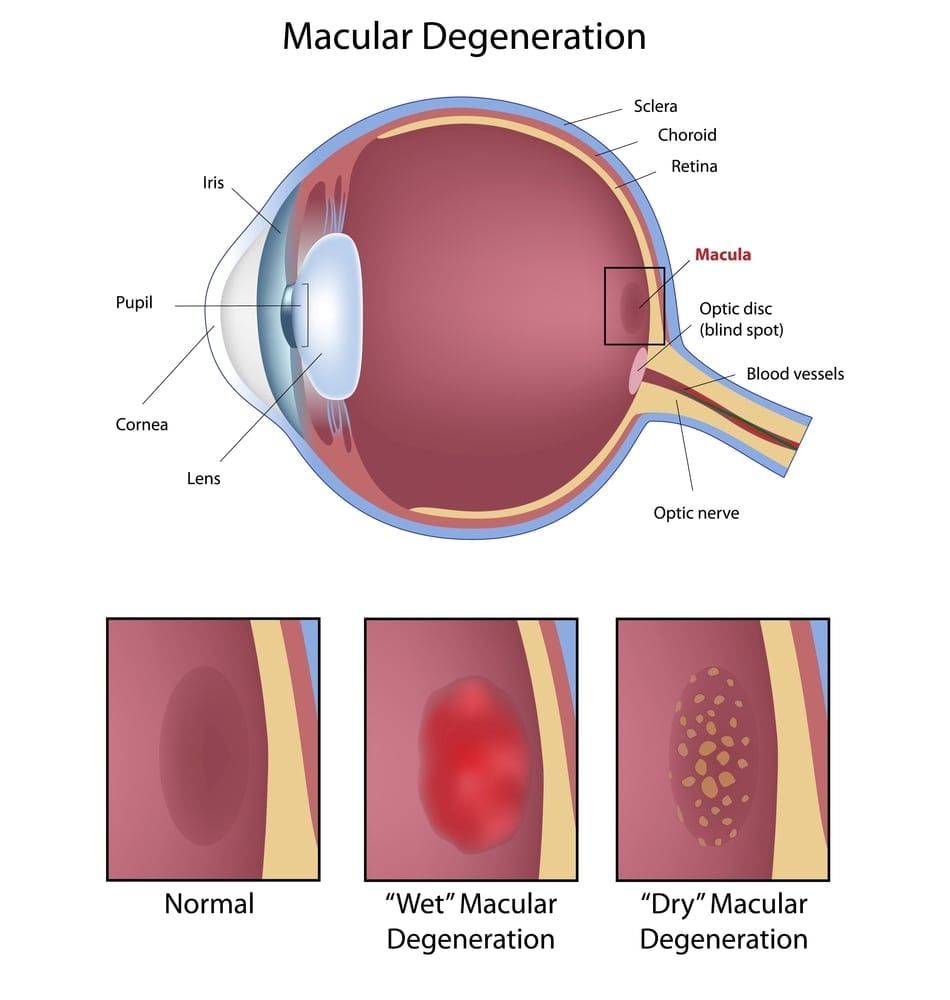Macular degeneration is a disease in which the macula weakens, resulting in a loss of central vision. The condition, also known as age-related macular degeneration (AMD), can cause blurring and even partial vision loss. There are two types of macular degeneration – wet and dry. Most people with the disease have the latter version, which is caused solely by an aging macula. However, some people have wet macular degeneration, which occurs when abnormal blood vessels grow inside the macula. The wet version can lead to permanent scarring and loss of central vision.
Did you know…
that macular degeneration is one of the leading causes of vision loss in America? Currently, there are approximately 1.8 million adults over age 40 who have macular degeneration – most of whom are seniors ages 75 and up. Even more – 7.3 million – are currently considered at high risk of developing the disease. In fact, the Centers for Disease Control estimates the prevalence of macular degeneration to grow, reaching nearly 3 million by the year 2020.
Frequently Asked Questions
Who is at risk for developing macular degeneration?
Age is the most influential risk factor for developing macular degeneration, though the disease is also common in Caucasians, and people who smoke. The symptoms of metabolic syndromes such as obesity, high blood pressure, and high cholesterol, can also increase the risk of developing macular degeneration.
What are the symptoms of macular degeneration?
In most cases, the symptoms of macular degeneration begin gradually and progress slowly over time. People often describe having blurry vision or blind spots, as well as difficulty perceiving color. Anyone who is experiencing unusual vision changes should schedule an optometry appointment. A routine eye exam can identify AMD in its earliest stages, which may improve long-term management of the disease.
What is the treatment for macular degeneration?
There is no cure for macular degeneration although an optometrist can help manage the condition. People with AMD may benefit from certain nutritional supplements like zinc and beta-carotene, as well as certain drug therapies as the disease becomes more advanced. Wet macular degeneration often requires greater interventions, which may include laser therapy to target and destroy abnormal blood vessels in the eye.



